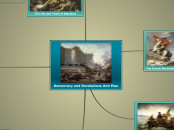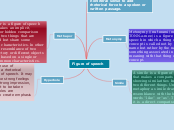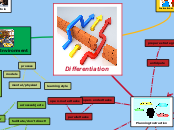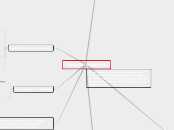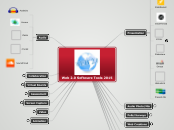Democracy and Revolutions Unit Plan
Historical Documents of Democracy
Students will use application to today from looking at primary sources.
Students will evaluate and analyze primary source documents to learn about the main principles behind the documents that represented the democratic governments of the different societies of the world.
Summative Assessments: The teacher will assess the students’ comprehension by looking at their mini declarations and see if they have the concept of connecting democracy and the declaration of rights.
The students will evaluate the information from the primary sources and create their own mini declaration.
Students will discuss the primary source documents.
Students will pay attention to the powerpoint and write the definitions of the vocabulary terms on their handout.
Students will identify the principles of the major documents associated with democratic ideals.
Formative Assessments: The teacher will assess prior knowledge during the introduction part of the lesson when listening to students’ answers. The teacher will walk around while the groups are reading and answering their questions. When students are writing their answers to the questions from their slips, the teacher will assess accuracy of information and evaluation.
Students will analyze the primary source documents and answer the document based questions.
Students will participate in a disscussion about what they would do to change an oppressed government.
Ideas and Revolutions
Students will identify and evaluate the positive ideas of the major philosophers in regards to the idea of revolution (despite their sometimes negative effects) and how ideas influence revolution.
Summative: The teacher will see if the students have grasped the purpose of the discussion through holding a class discussion and asking questions about the main issue.
The teacher will read the answers to the question given at the end of class to see if the subject needs to be revisited.
Students are participating in a wrap up discussion to understand the concept of perspectives and differences. Students discuss how events have both positive and negative sides to them.
Students are participating in a discussion through role play to talk about the ideas of philosophers through the eyes of someone else and experience perspective.
Students will learn the different perspectives of the different philosophers that affected the major revolutions of the world.
Formative: The teacher will assess prior knowledge by asking what they know about the revolutions they have previously learned about.
The teacher will walk around during the activity assessing if the students are able to use the given knowledge to have a discussion and answer the given questions.
Teacher is reviewing information and intro ducting new information through graphic organizers to prepare the students for their activity.
The Life and Times of Napoleon
Students will learn about Napoleon, how he came to power, and his impact on history.
Summative: The teacher will assess the diary entries to see if the students not only grasped the historical information and were able to back up an argument using that information, but also to see if they have learned how to look at history through different perspectives and with a historical viewpoint, not a presentist viewpoint.
Students are writing a persuasive piece to practice using evidence to back up their opinion and write persuasively.
Students are looking at history from another perspective than their own.
Students are interactively researching Napoleon and getting in the mindset of a character through the use of technology.
Students will be able to evaluate history from a different perspective and make an argument with supporting historical evidence through completing a webquest and creating a character diary.
Formative: The teacher will watch the progress on the webquest answers to see if students are answering the questions with the correct information from the websites.
Teacher sets up the web quest activity by giving background information and asking questions to get the students thinking to get in the mindset of the activity and of someone who lived during that time.
Impact of the American Revolution
Students will identify the reasons that the American Revolution impacted other countries (such as France).
The summative assessment will be the letter, so the teacher can see that the students were able to identify the most common reasons for a revolution, and the impact the American Revolution had on other countries’ revolution, such as France’s revolution.
Students will write a letter to apply the information they learned to a real-life situation.
Students will create a comparison foldable of the French Revolution and the American Revolution.
Students will recognize the events that surrounded the American Revolution.
The teacher will give a formative assessment when they are going through the causes of the American and French Revolutions and when the class discusses their similarities.
Students will take notes on the video they watch.
The French Revolution
Students will be able to describe the 5 Ws of the French Revolution (who, what, where, when, why), by using the information from the lecture, and write it on an exit slip.
Summative Assessment: There will be a short answer quiz of the 5 Ws that will show the teacher if the main points of the lesson were understood. These will be the students’ exit slips.
Students will complete the 5 ws on the American Revolution.
Students will complete guided notes that accompany the lecture that include factual questions and critical thinking questions.
Students will be able to identify the major events of the French Revolution, its causes, and why it was important through answering the critical thinking questions during the lecture and write the answers on the guided notes.
Formative Assessments: During the lecture, there will be engaging questions that gauge if something needs to be repeated or explained more in depth.
Teacher gives lecture on the French Revolution.
